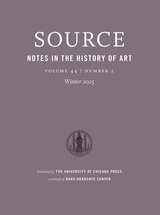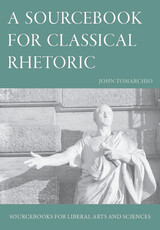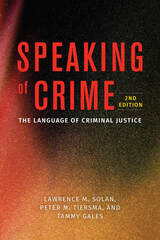133 books about Migration and 5
start with P
133 books about Migration and 5
133 books about Migration
5 start with P start with P
5 start with P start with P

Paradoxes of Migration in Tajikistan
Locating the Good Life
Elena Borisova
University College London, 2024
An intimate ethnographic account of migration and (im)mobility as a mundane part of people’s lives in the region of Tajikistan.
Tajikistan is one of the most remittance-dependent countries in the world. Moving beyond economistic push-pull narratives about post-Soviet migration, Paradoxes of Migration in Tajikistan foregrounds the experiences of those who “stay put” in the sending society and struggle to reproduce their moral communities. In this first book-length ethnography of migration in Tajikistan, Elena Borisova examines the role of mobility through historical and cultural ideas about the good life. She demonstrates how mobility becomes entwined with people’s efforts to become good, moral, and modern subjects. Addressing the complex relationship between the economic, imaginative, and moral aspects of (im)mobility, Borisova shows that mass migration from Tajikistan is as much a project of navigating ethical personhood as it is a quest for economic resources.
This book is a beautifully crafted ethnographic account that reveals how transnational regimes and structures of mobility, citizenship, and histories map out in the intimate spheres of the body, the person, and the family. It is a major contribution to contemporary migration research, which is mostly centered on Europe and North America, and to the field of Central Asian studies. Highly readable, it will be of interest to researchers of migration, (im)mobility and citizenship, and to scholars of all disciplines working on Central Asia.
Tajikistan is one of the most remittance-dependent countries in the world. Moving beyond economistic push-pull narratives about post-Soviet migration, Paradoxes of Migration in Tajikistan foregrounds the experiences of those who “stay put” in the sending society and struggle to reproduce their moral communities. In this first book-length ethnography of migration in Tajikistan, Elena Borisova examines the role of mobility through historical and cultural ideas about the good life. She demonstrates how mobility becomes entwined with people’s efforts to become good, moral, and modern subjects. Addressing the complex relationship between the economic, imaginative, and moral aspects of (im)mobility, Borisova shows that mass migration from Tajikistan is as much a project of navigating ethical personhood as it is a quest for economic resources.
This book is a beautifully crafted ethnographic account that reveals how transnational regimes and structures of mobility, citizenship, and histories map out in the intimate spheres of the body, the person, and the family. It is a major contribution to contemporary migration research, which is mostly centered on Europe and North America, and to the field of Central Asian studies. Highly readable, it will be of interest to researchers of migration, (im)mobility and citizenship, and to scholars of all disciplines working on Central Asia.
[more]

Peasantry in the Cheb City-State in the Late Middle Ages
Socioeconomic Mobility and Migration
Tomáš Klír
Karolinum Press, 2024
A reassessment of fundamental scholarship on the Middle Ages, based on previously unknown medieval written source material.
The medieval peasantry represents a particularly compelling unknown for historians, as it holds the key to understanding both later economic growth and the surprising stagnation experienced in some European regions. Our current knowledge about the social structures and institutions of the medieval peasantry remains superficial, with almost nothing known about their real inner dynamics and demographic aspects. The present monograph confronts this issue head-on, taking advantage of previously neglected written sources from the Cheb city-state, which are unique in the European context. Drawing from this material, the book presents a remarkably detailed view of social mobility, migration, and the reproduction of social structures among the peasantry in the late Middle Ages while offering new perspectives on the mass abandonment of rural settlements during that period. It also identifies hitherto unknown mechanisms by which peasant communities responded to family demographic cycles and short-term economic fluctuations.
The medieval peasantry represents a particularly compelling unknown for historians, as it holds the key to understanding both later economic growth and the surprising stagnation experienced in some European regions. Our current knowledge about the social structures and institutions of the medieval peasantry remains superficial, with almost nothing known about their real inner dynamics and demographic aspects. The present monograph confronts this issue head-on, taking advantage of previously neglected written sources from the Cheb city-state, which are unique in the European context. Drawing from this material, the book presents a remarkably detailed view of social mobility, migration, and the reproduction of social structures among the peasantry in the late Middle Ages while offering new perspectives on the mass abandonment of rural settlements during that period. It also identifies hitherto unknown mechanisms by which peasant communities responded to family demographic cycles and short-term economic fluctuations.
[more]

Planetarity from Below
Decolonial Ecopoetics of Migration and Diaspora
Emily Yu Zong
University of Michigan Press, 2026
What can migrant ecologies teach us about collective planetary futures? In Planetarity from Below, Emily Yu Zong argues that modern freedom has framed migration in anthropocentric terms, neglecting that migration is also an ecological process. Analyzing a diverse body of migration literature across Australia, North America, and China, she explores how these works unlearn modern capitalist systems of property, individualism, and freedom while imagining collaborative and ecological survival from the margins.
Through short stories, memoirs, speculative fiction, poetry, and documentary films, Zong unpacks a decolonial migrant ecopoetics, revealing a pluralist method of worldmaking—from Australia’s oceanic refugee camps, Indigenous Canadian land, and Chinese migrant worker sweatshops, to climate futures. These migrant ecologies imagine freedom “from below” not simply as individual survival or assimilation but as an unruly and contingent process of shared creativity with animals, waters, minerals, waste, and technology.
Shifting environmental ethics from individual morality to a political ecology of sustaining life in precarity, Zong introduces decolonial knowledges, imaginations, and praxes that help us expand justice and freedom beyond the human, asking how borderland subjectivities can open new possibilities for multispecies flourishing.
Through short stories, memoirs, speculative fiction, poetry, and documentary films, Zong unpacks a decolonial migrant ecopoetics, revealing a pluralist method of worldmaking—from Australia’s oceanic refugee camps, Indigenous Canadian land, and Chinese migrant worker sweatshops, to climate futures. These migrant ecologies imagine freedom “from below” not simply as individual survival or assimilation but as an unruly and contingent process of shared creativity with animals, waters, minerals, waste, and technology.
Shifting environmental ethics from individual morality to a political ecology of sustaining life in precarity, Zong introduces decolonial knowledges, imaginations, and praxes that help us expand justice and freedom beyond the human, asking how borderland subjectivities can open new possibilities for multispecies flourishing.
[more]

Polish Cities of Migration
The Migration Transition in Kalisz, Pila and Plock
Anne White
University College London, 2024
An interpersonal look into Poland’s shift from an emigration country to an immigration country.
Polish Cities of Migration analyzes Poland’s transition to become a “country of immigration.” Incorporating in-depth interviews with thirty-seven Polish returned migrants, seventy Ukrainians, and seventeen foreigners living in Kalisz, Plock, and Pila, the book explores two interconnected puzzles: how Poland’s migration transition is influenced by its current status as an emigration country, and why migrants are spreading out beyond the metropolises. It argues that migrants’ feelings of comfort in such locations are explained by network and lifestyle considerations, as well as the social acceptance of migration by former migrant Poles.
Polish Cities of Migration analyzes Poland’s transition to become a “country of immigration.” Incorporating in-depth interviews with thirty-seven Polish returned migrants, seventy Ukrainians, and seventeen foreigners living in Kalisz, Plock, and Pila, the book explores two interconnected puzzles: how Poland’s migration transition is influenced by its current status as an emigration country, and why migrants are spreading out beyond the metropolises. It argues that migrants’ feelings of comfort in such locations are explained by network and lifestyle considerations, as well as the social acceptance of migration by former migrant Poles.
[more]

The Politics of Migration and Mobility in the Art World
Transnational Baltic Artistic Practices across Europe
Emma Duester
Intellect Books, 2021
This volume studies the movements of visual artists from the Baltic States of Lithuania, Latvia, and Estonia, where a lack of opportunities makes migration necessary for career progression. Faced with such barriers, how do artists from the Baltic States break into the global art market? Emma Duester argues that these artists form an artistic diaspora of practice, forming communities across geographic and ethnic borders.
Offering a fresh perspective on art and the working lives of those who create it, this multidisciplinary work investigates patterns of migration and mobile working practices across Europe and discusses the implications of artists’ movements on conventional notions of home, mobility, and diaspora. Amid a global refugee crisis, a resurgence in negative portrayals of Eastern Europeans in mainstream media, and increasing anti-immigrant sentiment fueled by Brexit and the rise of protectionism, this is a vital work that shines important new light on diaspora, displacement, and what it means to belong.
Offering a fresh perspective on art and the working lives of those who create it, this multidisciplinary work investigates patterns of migration and mobile working practices across Europe and discusses the implications of artists’ movements on conventional notions of home, mobility, and diaspora. Amid a global refugee crisis, a resurgence in negative portrayals of Eastern Europeans in mainstream media, and increasing anti-immigrant sentiment fueled by Brexit and the rise of protectionism, this is a vital work that shines important new light on diaspora, displacement, and what it means to belong.
[more]
READERS
Browse our collection.
PUBLISHERS
See BiblioVault's publisher services.
STUDENT SERVICES
Files for college accessibility offices.
UChicago Accessibility Resources
home | accessibility | search | about | contact us
BiblioVault ® 2001 - 2025
The University of Chicago Press









